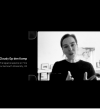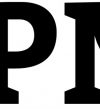Research Seminar
Wednesday 20 November 2019, 14:00 – Room F204 (Fusion Building)
The intervention of digital service providers (DSPs) or platforms such as Spotify, AppleMusic and Tidal supplying music streamed music has fundamentally altered the way that song-writers and recording artists are paid and the operation of copyright management organisations (CMOs). Platform economics has emerged from the economic analysis of two- and multi-sided markets, offering new insights into the way business is conducted in the digital sphere and is applied here to music streaming. The business model for music streaming differs from previous arrangements by which the royalty paid to song-writers and performers was set as a percentage of sales; royalties now depend on many other factors. There is no direct interaction (as in a sale) between the consumer of the product and the producer as the platform intervenes, maximises its revenue by setting prices on different sides of the market. In the case of music streaming there are subscriptions and ad-based free services so payment is based on revenues from both. The streaming service sets a rate per stream with the various rights holders that varies according to the deal made with CMOs, with each of the major record labels, with representatives of independent labels and with unsigned artists and songwriter with consequences for artists’ earnings. The article discusses these various strands in terms of the underlying economics, with data and information from Norwegian CMOs, giving empirical support to the analysis.
____________________________________________
Ruth Towse is Professor of Economics of Creative Industries and Co-Director of CIPPM
____________________________________________






